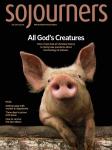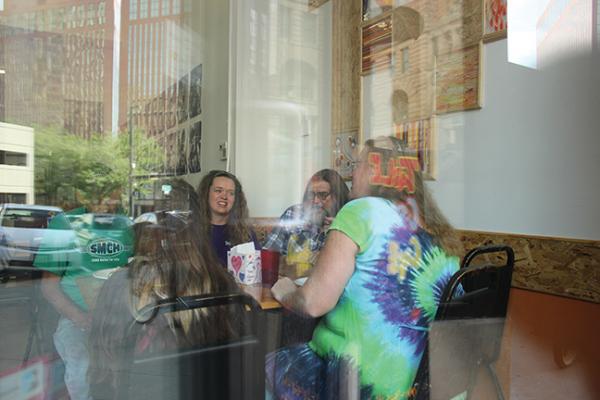In 2011, Matt and Simone Weber co-founded Table Grace Cafe in Omaha, Neb.—a community lunch cafe staffed with volunteers who participate in a 10-day restaurant internship program.
Simone is a Nashville-recorded singer-songwriter and Matt has culinary training from the Natural Gourmet Institute in New York. Together, the Webers spread a message of grace along with a cup of homemade soup and gourmet pizza.
Website: tablegracecafe.com
1. Why did you decide to incorporate a job assistance program?
Matt: I knew that we would be using volunteers off the street every day, since that’s one way people can get food—if they can volunteer. We were running into people who were in transition, from jail or homelessness, and could use that service. And because I have culinary training and education, it was easy for me to come up with this concept.
2. I hear you don’t have a cash register at the cafe.
Matt: That’s right. It’s a donation box instead of a cash register. We have no prices on our menu. We tell people what the food is worth, but we don’t require a certain amount. We believe that everybody is able to be generous no matter where they are in life. By allowing people to give a free-will donation, we’re meeting people where they are and inviting them to give what’s generous for them.
3. Why is it important for your food to be nutritious and delicious?
Matt: Whenever I talk about Table Grace and eating healthy, I ask the question, “If someone were homeless, trying to improve their life situation, do you think they have a better chance of doing that if they are fed healthy food or unhealthy food?” The answer is very obvious. We all function better if we have healthy foods to eat. We live in a society where restaurants are oftentimes hip and trendy—it’s entertainment as much as it is anything. But food is our fuel, and so it should be healthy. But it also can be delicious.
4. Your mission is “to nourish hungry bodies and souls.” How do you nourish souls?
Simone: Music is one way we nourish the soul. Just by sharing music, it’s a spiritual experience. Another way is, on Thursdays, we invite people from all walks of life to come together and talk about their journey of faith. We often utilize scripture, but of course we keep the door open to people who are challenged by faith or don’t have a faith at all. Everyone is welcome to come around that table and share in the journey of life, and hopefully find God’s presence through the community there.
5. What would you tell people who want to do hunger outreach in their communities?
Matt: I would give the resource that has been our main inspiration: the book Toxic Charity, by Robert Lupton. I would say read that book and try to frame whatever you do around that philosophy. We have to consider equality and equal distribution of resources, but we have to do it in a way that empowers people instead of enables them.
Simone: The issues that we’re tackling and the way that we’re choosing to live them out are a marathon, not a sprint. If we want to be an example of a compassionate, radical, hospitable community, we have to approach it as a marathon. We have to invite others into it and engage the community deeply in order to sustain it over the long haul.

Got something to say about what you're reading? We value your feedback!

